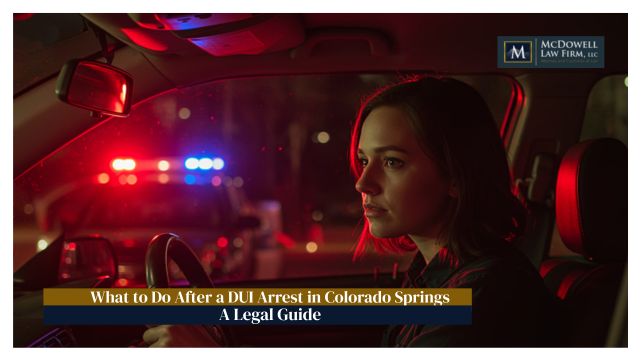If you’ve been charged with a DUI in Colorado, the court will often require you to take DUI education and substance abuse treatment classes as part of your sentence. These classes are not only a legal requirement but also an intervention to address underlying substance use issues. If you’ve been charged with a DUI, you need to understand what these classes are and how they work so you can complete them successfully and impact your case.
DUI education and treatment programs have two purposes:
- Rehabilitation: Courts want to address the underlying reasons for substance use that leads to impaired driving. By participating in these programs, you’ll learn about the physical, mental and social effects of substance use and develop skills to avoid future offenses.
- Public Safety: These programs reduce recidivism and make the roads safer for everyone. The idea is education combined with treatment can correct bad behavior, make the community safer and help the offender grow
DUI and Substance Abuse Classes
In Colorado, courts assign offenders to different levels of education and therapy based on the severity of the offense, Blood Alcohol Content (BAC) at the time of arrest and the individual’s history of substance use.
Level I Alcohol Education
- Who It’s For: First-time offenders with very low BAC and no substance use history. A Level 1 recommendation is very rare in DUI cases.
- Duration: 12 hours of classes, over several days or weeks.
- Content: Classes cover the effects of alcohol on the body and mind, DUI laws and impaired driving dangers. Educational focus to prevent future infractions by raising awareness.
Level 2 Alcohol Education and Treatment
- Who It’s For: Repeat offenders or high BAC levels.
- Duration: 24 hours of education over 12 weeks, with additional therapy that can last 5+ months depending on individual needs. A Level 2 (Level II) is ordered in almost every DUI and DWAI case.
- Content: This program includes education and intensive therapy to address chronic substance use and behaviors that lead to impaired driving. Participants may attend group therapy sessions which provide peer support and accountability or one-on-one therapy sessions with licensed counselors.
DUI and Alcohol Therapy and Treatment Options
If the offender has a more severe substance use disorder, additional therapy programs may be required. After a Level 2 Alcohol education is completed, you may be required to participate in therapy. Typical DUI therapy comes in “Tracks” that determine how long you will be in treatment. These therapy sessions are typically in a group setting and last for two hours, once a week. Below are the therapy tracks and what conditions typically will get you evaluated into a certain track. Alcohol evaluators will have you fill out an evaluation and participate in an interview to determine your Track/ treatment plan.
- Track A: 42 hours of therapy over 21 weeks. This is usually required for a first-time offender with a Blood Alcohol Content (BAC) below 0.17.
- Track B: 52 hours therapy over 26 weeks. 1st time offender with a BAC of 0.17 or above.
- Track C: 68 hours therapy over 34 weeks, usually required for an individual with a prior DWAI/DUI and a BAC below 0.17.
- Track D: 86 hours over 43 weeks, prior DWAI/DUI and a BAC of 0.17 or above.
- Four Plus (4+): When a person is on their fourth or greater DUI. Keep in mind, a fourth or greater DUI/DWAI in Colorado will be filed as a felony DUI charge.
These options provide deeper interventions to help the individual overcome addiction and prevent future offenses:
Cognitive Behavioral Therapy (CBT)
- Helps the individual identify and change negative thought patterns and behaviors related to substance use.
- CBT is a key tool for building better coping skills and preventing relapse.
Outpatient Programs
- For individuals who need therapy while continuing their daily routines.
- Participants attend scheduled sessions to discuss challenges, triggers and strategies for staying sober.
Inpatient Treatment Programs
- For those with severe addiction or multiple DUIs.
- Participants live in a residential facility and receive intensive treatment and support.
Sobriety Monitoring
DUI and substance abuse classes in Colorado are court-ordered and monitored. Completion is usually tied to probation or license reinstatement (this can also be through an Ignition Interlock Device). Failure to comply can result in:
- Extended probation
- Additional jail time
- Suspension of driving privileges
The program reports to the court or probation officer throughout the process. Some offenders, especially those with Department of Transportation (DOT) violations, must also complete a Substance Abuse Professional (SAP) evaluation to meet federal requirements for employment reinstatement
Criminal Defense Attorney
If you’ve been charged with a DUI, working with a criminal defense attorney can make a big difference. Your attorney can help you:
- Understand the court requirements for enrolling in the right DUI classes.
- Negotiate probation or sentencing terms based on your education and treatment program participation.
- Meet all compliance deadlines to avoid further legal consequences.
By completing the required classes and programs you show the court you are committed to change which can improve your case outcome and get you back on the road and in recovery.
DUI and substance abuse classes in Colorado are more than just a court requirement—they’re a chance for rehabilitation and personal growth. By completing the right education and therapy, offenders get the education and skills to make better choices and contribute to public safety. With these programs and a criminal defense attorney, offenders can start rebuilding their lives while they meet the court-mandated requirements.




